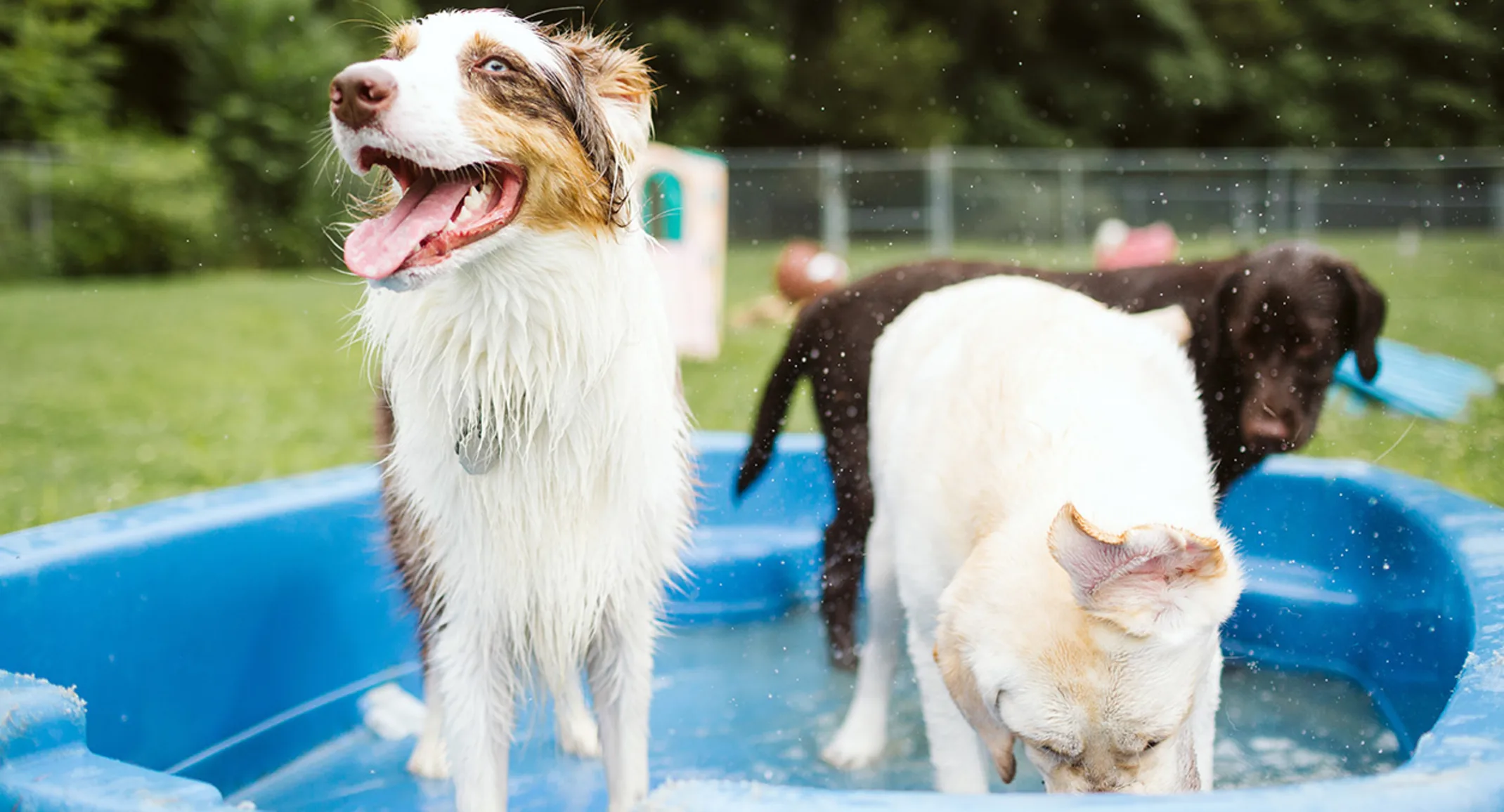What is Pet Boarding? Pet Boarding FAQs
Pet Lifestyle

Pets are family, and you may feel sad if you have to leave them when traveling for work or vacation. You likely want your pet to join you wherever you go, however, a time will inevitably come when the best choice for you and your pet is for them to stay behind. For traveling pet owners, boarding their four-legged friend is a popular option.
Many pet owners feel guilty for leaving their pet behind, but a stay at a boarding facility can make your pet feel like they are on a vacation, and your four-legged friend will likely enjoy their experience more than you ever imagined they would. However, if you’ve never boarded a pet, you likely have many questions. To learn about the boarding process and help you choose the right facility for your pet, read our responses to the following frequently asked questions.
Question: What is a pet boarding facility?
Answer: A pet boarding facility is designed and operated specifically to care for pets for various lengths of time. Most boarding facilities provide a variety of additional pet services such as grooming, training, dog walking, and routine and emergency veterinary care. While most boarded pets are dogs and cats, some facilities offer boarding for horses, birds, reptiles, and exotic pets.
Q: What are the benefits of boarding my pet?
A: You may view pet boarding as a last resort when you can’t bring your pet on a trip, but your pet’s experience can be positive, introducing you both to boarding’s many benefits, which may include:
Peace of mind — Boarding your pet gives you peace of mind while you’re away, because you know experienced, trained professionals—who love animals as much as you do—are caring for your beloved companion. You likely also recognize that these professionals are providing your pet with companionship, preventing your four-legged friend from becoming lonely.
Socialization — In a boarding facility, your pet can interact and socialize with other pets and people in a safe and controlled environment. Supervised play with other pets can improve your four-legged friend’s confidence and wellbeing. Rest assured that your pet does not have to socialize with other animals if they prefer interacting with people. If your pet is a well-behaved socializer, boarding facility staff will place them in an appropriate playgroup according to their age, size, and temperament.
Exercise and play — During their stay, your pet will receive walks and plenty of outdoor time where they can run and play. Your four-legged friend will be so busy moving around and having fun, they won’t have time to miss you, which is every pet owner’s hope for their boarded pet.
Q: What are the requirements to board my pet?
A: A high-quality boarding facility will require that your pet’s vaccinations and parasite (i.e., flea and tick) prevention are current, but each facility has their own requirements, so do your homework before you reserve your pet’s boarding space. Schedule an appointment with your veterinarian well in advance of your pet’s boarding stay to ensure your four-legged friend’s vaccinations are up to date, and you have plenty of parasite preventive refills. Give a copy of your pet’s vaccination records to facility staff to keep on file, and include your phone number in case they have questions.
Q: How do I choose the best boarding facility for my pet?
A : You know your pet best, and you likely have an idea of the environment that would make them feel most comfortable. When boarding your pet, consider their unique personality and needs, and choose a facility that you and your pet feel good about by following these tips:
Get recommendations — If this is the first time boarding your pet, you may not be familiar with local facilities. Seek recommendations from friends and family members who have boarded their pets, or reach out to your veterinarian. Many veterinary clinics offer boarding, which some pet owners prefer.
Tour the facility — When you make hotel reservations, you check out the lodging’s reviews and accommodation photo gallery before clicking RESERVE. Do the same research for your pet’s accommodation, but go a step further, and ask to tour the boarding facility. When you enter the facility, consider the cleanliness and sanitation. Does the air have a foul odor? When checking out a boarding facility, consider what’s important for your pet’s comfort and safety, and ask the following questions:
When the dogs play together, are they supervised?
What are the exercise and playtime protocols?
How are cats housed?
How much outdoor access do dogs receive?
How much interaction with people and other pets will my pet receive?
How long will my pet be left alone?
What is the protocol if my pet becomes ill?
Bring your pet for a practice stay — To help your pet acclimate to the facility’s sights, sounds, and smells, bring them for a short stay before you leave for your trip. Coordinate with the boarding facility staff to schedule a half-day or one-night stay. This practice stay is also a great way to introduce your pet to the staff who will be caring for them, and help address any issues or concerns before your pet’s longer stay.
Q: How can I prepare my pet for boarding?
A: Once you have found a boarding facility that meets your pet’s needs, the next step is to ensure your pet is prepared for their stay. Book your pet’s reservation well in advance—especially during the busy holiday season—because spots fill quickly. You will need plenty of time to prepare your pet for their boarding stay, which includes these must-dos:
Consult with your veterinarian — Before boarding your pet, schedule an appointment with your veterinarian to ensure your pet is up to date on their vaccinations and discuss ways to help your pet feel calm and comfortable during their stay. If your pet is highly anxious, your veterinarian may suggest medication to manage your pet’s anxiety while you're away.
Pack your pet’s essentials — Send your pet’s favorite toys and treats, a cozy bed, and other permitted familiar items. Remember to include enough of your pet’s medications and supplements to last during their stay. Pack your pet’s usual food to help them avoid gastrointestinal upset, which an unfamiliar diet could cause.
Keep goodbyes brief — Say goodbye when leaving your pet at a boarding facility can be difficult, but you can keep their anxiety and yours in check by skipping an overly dramatic, tearful goodbye.
If you are planning to board your pet soon, use this locator tool to find veterinary clinics and boarding facilities near you. Boarding your pet is a great option when you can’t bring them along on a trip, and this information can empower you to make the best choice for your pet.
